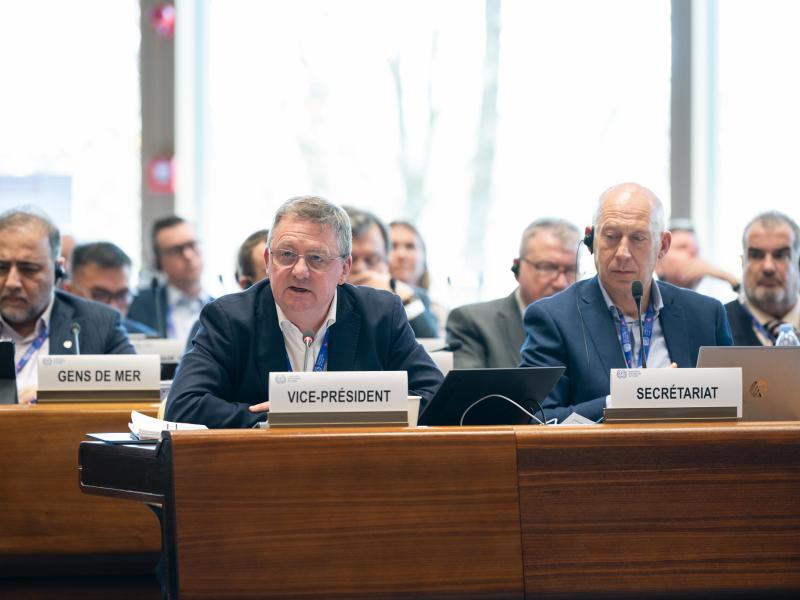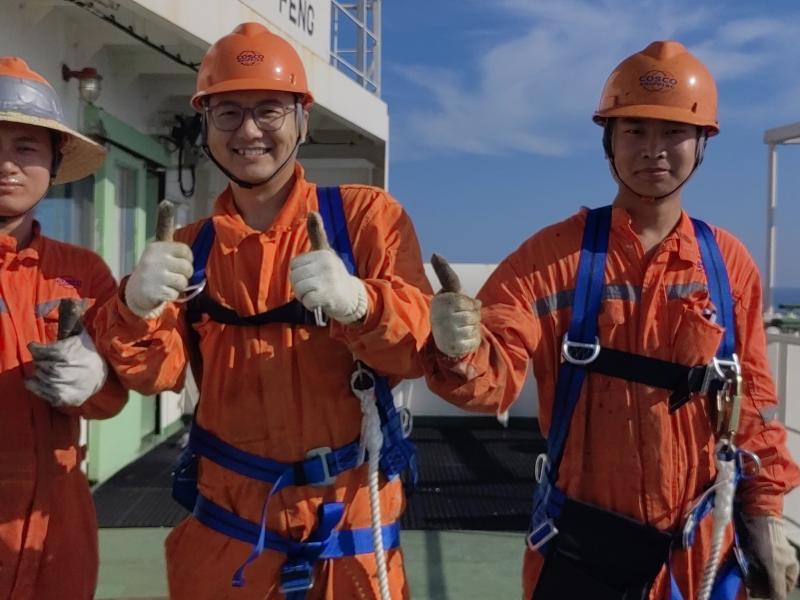LONDON – September 27, 2024 - The Tourism Workers’ Alliance, a joint initiative of the International Transport Workers’ Federation (ITF) and the International Union of Food, Agriculture, Hotel, Restaurant, Catering, Tobacco and Allied Workers’ Associations (IUF), has released a groundbreaking study on Environmental, Social and Governance (ESG) trends, projections, risks and opportunities in travel and tourism.
Drawing on multiple perspectives from across the industry – including unions, companies, investors and regulators – the report, ‘Why The ‘S’ In ESG Matters: Social Sustainability and Labour and Human Rights in Travel And Tourism’, outlines critical social risks and presents a clear business case for tackling labour and human rights issues head-on, alongside seven actionable steps for improving conditions across the sector.
“We get it, the industry needs to turn a profit – but to do so on the backs of workers is unfair and unsustainable,” said ITF General Secretary Stephen Cotton. “Too many tourism workers are living day-to-day, stuck in a cycle of low pay, precarious work, and unsafe working conditions. And these problems aren’t just ethical or moral failures – they are business risks that threaten the long-term viability of the industry.”
Cotton welcomed the emergence of ESG as a step in the right direction but emphasised that the entire sector needs to double down on the 'S' to make real change.
“There’s a clear and compelling business case for improved workers’ and human rights, it’s smart business. Treating workers better helps attract and retain talent, mitigates risks in the supply chain, and opens up new investment opportunities to build a more sustainable future for tourism.”
Key Findings
The report reveals the urgent need for better social governance to reduce systemic risks and secure a thriving industry:
- Tourism is a major global employer, but widespread poor labour conditions and a lack of decent work create systemic risks.
- Migrant, informal, and undeclared workers continue to be marginalised, facing high levels of exploitation.
- Addressing the root causes of global labour shortages requires the industry to improve working conditions for tourism workers, especially women, youth and migrant workers.
- Adhering to the principles of Equality, Diversity and Inclusion (EDI) is a core strength, but also a challenge for the industry.
- Ensuring the sector's social sustainability while continuing to grow is one of tourism’s greatest challenges.
“Too many tourism companies hide behind certification schemes and fake claims to be protecting the environment when what are really doing is cutting costs and making work ever more precarious,” said IUF General Secretary, Sue Longley. "This report confirms that they need to engage with trade unions, global and national, and together we can turn corporate claims into tangible improvements in the daily lives of travel and tourism workers."
Industry action plan
The report calls for seven key actions to help businesses, governments, investors and unions build a socially sustainable future:
- Establishing multi-stakeholder initiatives with robust policy and legislative frameworks and compliance systems.
- Increasing access to unions and reputable experts on labour and human rights.
- Conducting double materiality assessments for labour and human rights.
- Developing and implementing policies and processes with clear, measurable objectives for improving labour and human rights.
- Selecting meaningful indicators that address key risks, involving employees in the process, and transparently collecting and analysing data.
- Accounting for direct impacts as well as supply chain impacts.
- Communicating results and progress towards set targets openly and honestly.
“We extend an open invitation to everyone – industry leaders, government officials, and stakeholders from across the sector – to join us in building a travel and tourism industry that’s sustainable in every sense of the word – environmentally, economically, and socially,” said Cotton.
"The future of tourism depends on our collective ability to put workers' and human rights at the heart of the industry's growth."
About the report
Commissioned by the Tourism Workers’ Alliance and expertly crafted by Dr Anke Winchenbach, with support from Professor Xavier Font, both of the University of Surrey (UK) and Graham Randles of Envesco Ltd. The report analyses and maps indicators from four different emerging ESG approaches: European Sustainability Reporting Standards (ESRS), UN Tourism’s Statistical Framework for Measuring the Sustainability of Tourism, Global Sustainable Tourism Council Criteria and World Benchmarking Alliance. It finds that the largest number of indicators address own workforce and value chain workers, with Exploitation and Harassment, Equal Opportunities and Decent Work being the most prominent themes.
About the Tourism Worker’s Alliance
The International Transport Workers' Federation (ITF) and the International Union of Food, Agricultural, Hotel, Restaurant, Catering, Tobacco and Allied Workers Associations (IUF) have joined forces to create the Tourism Workers’ Alliance. The Alliance is a collaborative trade union initiative designed to align the efforts of the ITF and IUF to amplify the voices of over 270 million tourism and transport workers.
About ITF
The International Transport Workers’ Federation (ITF) is a democratic, affiliate-led federation recognised as the world’s leading transport authority. We fight passionately to improve working lives; connecting trade unions from over 150 countries to secure rights, equality and justice for their members. We are the voice for nearly 16.5 million working women and men in the transport industry across the world.
About IUF
The International Union of Food, Agricultural, Hotel, Restaurant, Catering, Tobacco and Allied Workers' Associations (IUF) has 407 affiliates in 126 countries. From the fields to factories to hotels, restaurants and fast food chains, the IUF organises, fights and wins for workers across the food chain.



